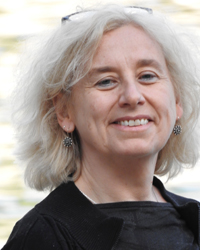German propaganda services in Belgium and occupied northern France (1940-1944)
Public History Meeting (2025-6)

Conference-debate (in French) with guest Louis Fortemps.
An interview led by Chantal Kesteloot.
In May 1940, the German army invaded Western Europe and placed these territories under strict control. To support this military occupation, the Wehrmacht created propaganda services with the specific task of addressing the occupied populations. It was in this context that the Propaganda-Abteilung Belgien (PAB) was created in Brussels. Its purpose was to reach out to Belgians and northern French people in order to maintain order and exploit the territory economically, while spreading National Socialist ideology. Until now, no overview of the Propaganda-Abteilung Belgien was available. This gap has now been filled thanks to Louis Fortemps' doctoral thesis.
He analyses in depth this German propaganda service responsible for overseeing the various types of media and cultural circles in occupied Belgium and northern France. The Propaganda-Abteilung controlled the press, radio, and cinema, as well as theater, literature, music, and the visual arts. It also set up branches in the major cities of Belgium and northern France. But its mission remained difficult. It had to address the Flemish, French-speaking Belgians, and French people of Nord-Pas-de-Calais. Studying the Propaganda-Abteilung also means examining the influence of Propaganda Minister Joseph Goebbels.
To study this organization, the author drew on the PAB archives rediscovered during his research, documents from Berlin institutions, and Belgian and French post-war judicial archives.
How did the Propaganda-Abteilung function in practice? What were its prerogatives? How much influence did it have on the media and culture in occupied Belgium and northern France? What were the profiles of the propagandists? What was their relationship to National Socialism?
Louis Fortemps will answer these questions, which are the result of years of research carried out as part of his doctoral thesis, on Wednesday, 15 October. The debate will be moderated by Chantal Kesteloot. This event will take place in the CegeSoma conference room as part of the Public History Meetings, in partnership with the non-profit organisation ‘ Friends of CegeSoma’.
Louis Fortemps is a doctoral student in History and Communication at the University of Lille and KU Leuven. His dissertation focuses on German propaganda services in occupied Belgium and northern France (1940-1944). He is more generally interested in the question of the German occupation and has published a book 'La police secrète de la Wehrmacht en Belgique (1940-1944)’ with Vincent Gabriel. At the same time, he is also conducting a research project on the correspondence of German soldiers.

Chantal Kesteloot is in charge of public history at CegeSoma/State Archives. She is especially interested in the phenomenon of commemorations, the place of the past in public space, and the role of images.
She coordinates the Belgium WWII website.